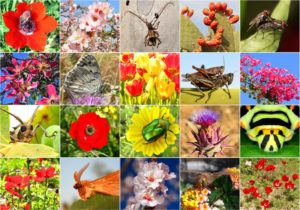
Biodiversity. Ecologists found that grasslands, savannas and shrublands were most affected by biodiversity loss, followed closely by many of the world’s forests and woodlands. They say the ability of biodiversity in these areas to support key ecosystem functions such as growth of living organisms and nutrient cycling has become increasingly uncertain. Credit: Alexey Protasov / Fotolia
Levels of global biodiversity loss may negatively impact on ecosystem function and the sustainability of human societies, according to UCL-led research.
“This is the first time we’ve quantified the effect of habitat loss on biodiversity globally in such detail and we’ve found that across most of the world biodiversity loss is no longer within the safe limit suggested by ecologists” explained lead researcher, Dr Tim Newbold from UCL and previously at UNEP-WCMC.
“We know biodiversity loss affects ecosystem function but how it does this is not entirely clear. What we do know is that in many parts of the world, we are approaching a situation where human intervention might be needed to sustain ecosystem function.”
The team found that […]










